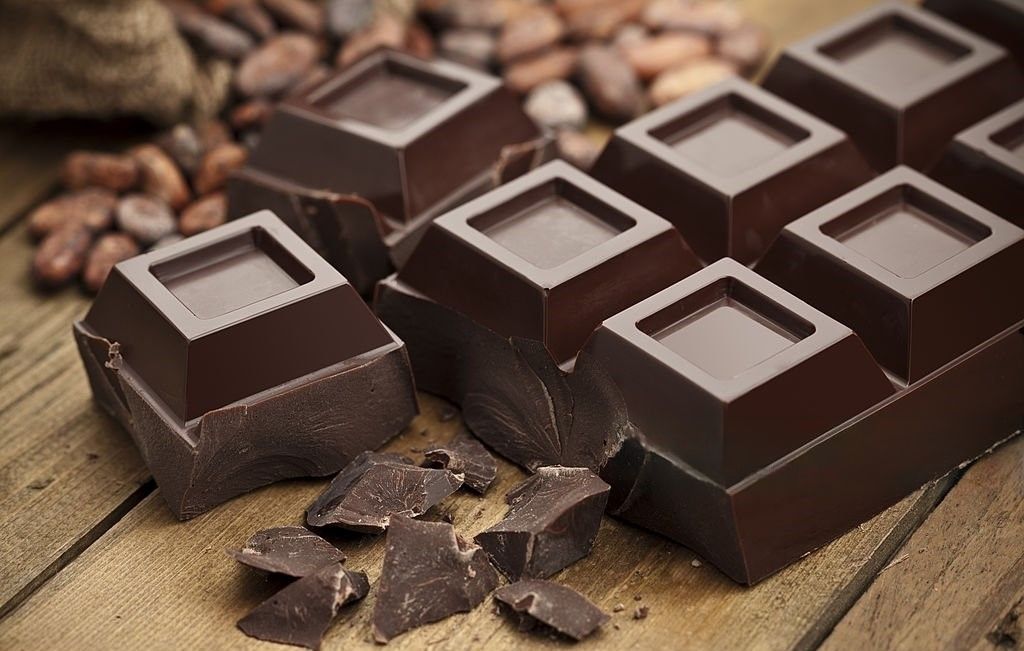Is Dark Chocolate Truly Good for Your Health?
Enjoying dark chocolate in moderation, especially when it contains a high cocoa content and is in its purest form, could potentially provide various health advantages.

Dark chocolate has long been a source of pleasure for many, but in recent years, it has gained a reputation as a "healthy" treat. The claim that dark chocolate is beneficial for your health has sparked both excitement and skepticism. In this blog, we'll delve into the scientific research to answer the question: Is dark chocolate truly good for your health? We'll explore the potential health benefits, explain the reasoning behind these claims, provide examples, and conclude with a summary of what the research suggests.
Understanding Dark Chocolate
Dark chocolate is made from cocoa beans, which are rich in compounds called flavonoids. Flavonoids are a type of antioxidant known for their potential health benefits. It's important to note that dark chocolate contains higher cocoa content compared to milk chocolate, making it a more concentrated source of these compounds.
The Science Behind Dark Chocolate's Potential Health Benefits
The health benefits attributed to dark chocolate are largely associated with its flavonoid content. Flavonoids are known to have antioxidant and anti-inflammatory properties, which can have positive effects on various aspects of health.
Heart Health
One of the most well-known potential benefits of dark chocolate is its positive impact on heart health. The reasoning behind this lies in the ability of flavonoids to improve blood flow and reduce inflammation. Studies, such as one published in the "American Journal of Clinical Nutrition," have shown that moderate consumption of dark chocolate can lead to improved cardiovascular function and a reduced risk of heart disease.
Blood Pressure Regulation
High blood pressure is a significant risk factor for heart disease. Dark chocolate contains compounds that may help lower blood pressure. Research, like a study in the "Journal of the American Medical Association," has suggested that regular consumption of dark chocolate can lead to a modest reduction in blood pressure, thanks to its ability to relax blood vessels.
Brain Function and Mood Enhancement
Dark chocolate also has the potential to positively affect brain function and mood. The flavonoids in dark chocolate may enhance cognitive function and boost mood by increasing blood flow to the brain and promoting the release of "feel-good" neurotransmitters like serotonin. Studies, such as one published in "Appetite," have explored the impact of dark chocolate on mood and found that it can lead to increased feelings of contentment.
Antioxidant Protection
Antioxidants play a vital role in protecting the body from oxidative stress, which is associated with various chronic diseases and aging. Dark chocolate's high flavonoid content contributes to its antioxidant properties. This is backed by research, like a study in "Free Radical Biology and Medicine," which found that dark chocolate consumption can increase antioxidant activity in the body.
Skin Health
Flavonoids in dark chocolate may also benefit your skin. These compounds can help protect the skin from damage caused by UV rays and improve hydration and circulation. While not a substitute for sunscreen, incorporating dark chocolate into your diet may offer additional skin protection, as suggested by research in the "Journal of Nutrition."
SUMMARY
Dark chocolate, particularly when consumed in moderation and in its purest form (with a high cocoa content), may offer several potential health benefits. The scientific reasoning behind these benefits is rooted in the flavonoid-rich composition of dark chocolate, which has antioxidant and anti-inflammatory properties. These properties can positively affect heart health, blood pressure regulation, brain function, mood, antioxidant protection, and even skin health.
However, it's essential to emphasize moderation. Excessive consumption of dark chocolate can lead to an increase in calorie and sugar intake, which can counteract its potential benefits. To enjoy the perks without the drawbacks, aim for a small daily serving of high-quality dark chocolate with at least 70% cocoa content.
Jayti Shah is a Clinical Nutritionist with a master's degree in Clinical Nutrition and Dietetics. She is a member of the Indian Dietetic Association (IDA). Over the last 9 years, she has helped 400 clients in their clinical and weight loss journeys. She works with SocialBoat as a nutrition consultant.
At SocialBoat, we offer custom diet plans and guided workouts to help you achieve your goals in a 360-degree approach. Our gamified experience ensures that you don’t find workouts boring and we reward you for being consistent with your efforts.

REFERENCES
- Taubert, D., Roesen, R., Lehmann, C., Jung, N., & Schömig, E. (2007). Effects of low habitual cocoa intake on blood pressure and bioactive nitric oxide: a randomized controlled trial. JAMA, 298(1), 49-60.
- Shrime, M. G., Bauer, S. R., McDonald, A. C., Chowdhury, N. H., & Coltart, C. E. (2015). Flavonoid-rich cocoa consumption affects multiple cardiovascular risk factors in a meta-analysis of short-term studies. The Journal of Nutrition, 145(4), 791-798.
- Macht, M., & Dettmer, D. (2006). Everyday mood and emotions after eating a chocolate bar or an apple. Appetite, 46(3), 332-336.
- Engler, M. B., Engler, M. M., Chen, C. Y., Malloy, M. J., Browne, A., Chiu, E. Y., ... & Mietus-Snyder, M. L. (2004). Flavonoid-rich dark chocolate improves endothelial function and increases plasma epicatechin concentrations in healthy adults. The Journal of the American Medical Association, 292(4), 430-437.
- Heinrich, U., Neukam, K., Tronnier, H., Sies, H., & Stahl, W. (2006). Long-term ingestion of high flavanol cocoa provides photoprotection against UV-induced erythema and improves skin condition in women. The Journal of Nutrition, 136(6), 1565-1569.
